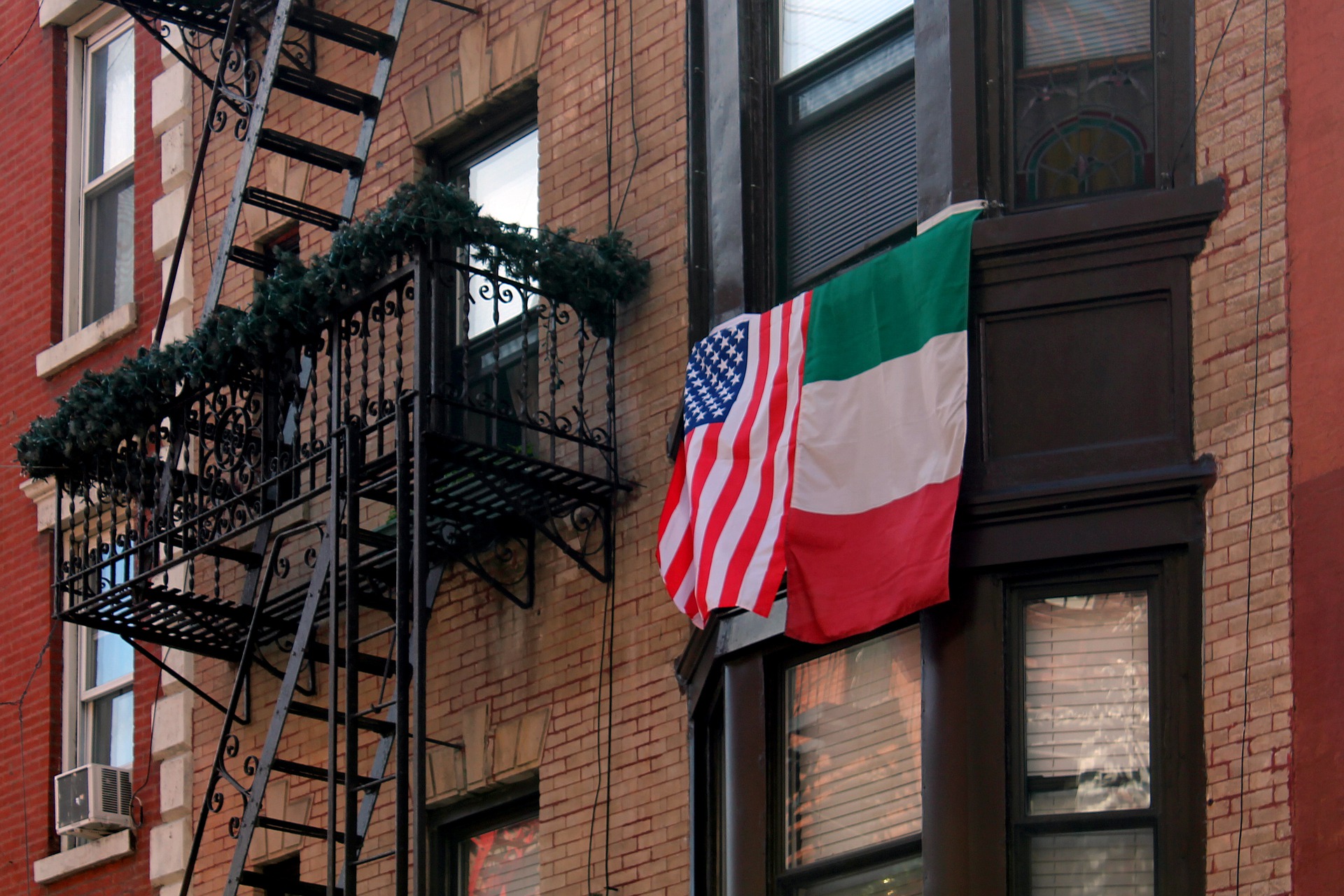From November 3rd to the 5th, at the campus of California State University, Long Beach (CSULB), it took place the 49th conference of the Italian American Studies Association (IASA), with the title “Recorded, Reported, Projected, and Pixelated—Italian Americans in Mass Media.”
Professors and scholars from across North America, as well as from Italy, offered very interesting food for thought to the audience.
Common ground to the speakers was the point of view, or the lenses, through which they looked at their individual topics.
Despite every one coming from different backgrounds, the presentations shared the same sociological concern with how North American media have been portraying Italian Americans (or Italian culture) throughout the decades.
As far as the topics, some were more “niche” and a lot less mainstream, such as in Professor Mark Pietralunga’s (Florida State University) speech, “Henry Armetta, ‘the Italian American’s Charlie Chaplin’: A Voice of the Italian American Community and a Voice of Unease,” in which he examined how the historical US bilingual weekly magazine, La Settimana (founded in the 30s by Italian immigrant Edward Corsi), compared Henry Armetta’s slapstick talent to Charlie Chaplin’s.
Other times, topics that apparently sounded more “pop” – as for Professor Mary Ann McDonald Carolan’s (Fairfield University) presentation, “Once upon a Time in Quentin Tarantino’s New West” – revealed to be extremely fresh. In fact, her investigation of Spaghetti Westerns’ influences and female characters in the latest Tarantino’s films, Django Unchained (2012) and The Hateful Eight (2015), offered new insights into the master’s works.
Parallel to the thematic lectures, the roundtable, “Teaching Italian American Studies in North America: Challenges and Successes,” enlightened the audience about the current status of Italian American studies in colleges across the country.
On the contrary, the George L. Graziadio Chair of Italian Studies at CSULB, Professor Clorinda Donato (recipient of “2016 CSULB Outstanding Professor Award”) had to face lots of challenges to get her Italian American studies’ course off the ground, despite a richly diverse setting like Southern California.
One last fruitful field of discussion was offered by the Mafia and its various media representations, remarkably two staples of American pop culture like the TV series, The Sopranos (1999-2007) and Francis Ford Coppola’s film, The Godfather (1972), seminal to the whole Mafia gangster genre.
In this respect, Joseph Tumolo, PhD student at UCLA’s Department of Italian Studies, with his presentation, “The Mafioso as Other: Mass Media, the Mafia, & the Displacement of Italian-American Alterity,” had a very distinct voice in the matter.
Please, introduce yourself in terms of studies and cultural background. How was growing up in an Italian-American household?
My name is Joseph Tumolo and I grew up in a suburb of Pittsburgh, Pennsylvania. My parents are both of Italian origin, and did preserve some of the traditions that their grandparents brought with them from the Mezzogiorno. So on one hand, I grew up with some Italian traditions and an Italian surname; but on the other hand, I did not learn Italian at home (I learned it later), and I did not grow up surrounded by other Italian-Americans in a Little Italy neighborhood.
For those reasons, I always wondered what really is at the heart of the Italian-American identity, and that question drove a lot of my studies. In 2010, I started my undergraduate education at Fordham University, aptly located steps away from Arthur Ave., the Little Italy of the Bronx.
I chose to major in Italian, and that opened a whole world to me, but I never forgot the reason why I originally chose to study Italian—because of the Italian-Americans. So that question was still there, and it followed me to the University of Connecticut where I did my M.A. in Italian Literary & Cultural Studies, and it is still very much with me now in my doctoral studies at UCLA.
With your presentation, you investigated the reasons why Italian-Americans, from the 70s, identified with the role model of the Mafia, as portrayed in Coppola’s The Godfather. Could you sum up here your main points supporting your argumentation?
There are a number of prominent voices in the Italian-American community that have expressed admiration for, or an ability to identify with The Godfather. This, coupled with some statistical information about high numbers of Italian-American teenagers embracing media images of Italian-Americans, had me wondering why it is that some of us identify so strongly with the film.
Of course I cannot speak for everyone, or every circumstance (my own grandfather refused to even watch the film). But in looking at The Godfather again, I could not ignore how it constructs Italian-American identity around the fictional mafia that it portrays. In doing that, Coppola (and Mario Puzo) make the identity sexy—the Corleones are powerful, wealthy, and feared. At the same time, the Italian-American of 1972 (the year the film was released), is more assimilated than ever: the Italian-American population of Little Italy neighborhoods is in sharp decline, and Italian-American wages and educational levels match national averages.
A lot of great scholarship has been done that shows that in this assimilation process, many Italian-Americans lost any sense of their history. Looking at The Godfather within this context, I believe that the appeal of the film to some Italian-Americans is in part a result of their displacing their own vague sense of difference onto the film.
In other words, Italian-Americans are still aware that they are not Anglo-Americans, but the distinction means less and less as they continue to assimilate. So the film articulates an easy-to-define Italian-American identity (which is of course fictional and problematic), and one that Italian-Americans can latch onto in the absence of a deeper knowledge of their history.
From your experience as PhD student at the Department of Italian, at UCLA, what are your impressions about the status of Italian American studies in academia?
I am very optimistic about the status of Italian-American studies in academia. Of course every field faces challenges, especially in times like these when university budgets are tightening. However, as we saw at the IASA conference, the Italian-American studies community is a group of generous, thoughtful scholars, many of whom have dedicated their careers to understanding and preserving a knowledge of the Italian-American experience. And it continues to be a very fertile field of study; as we as a society still work to come to terms with what it means to be diverse, I think that the Italian-American story offers invaluable lessons that cannot be ignored.




























